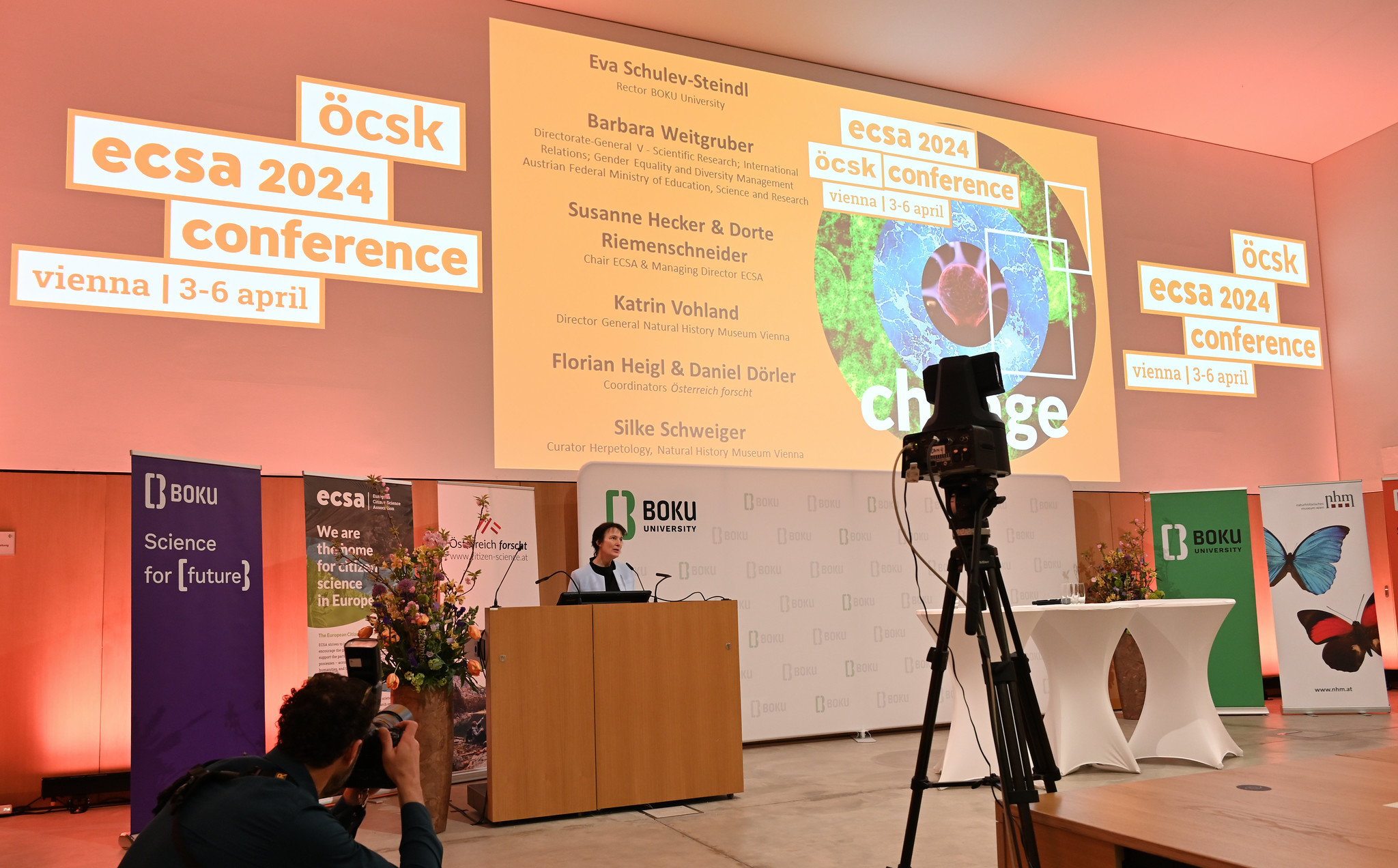The European Citizen Science Association (ECSA) is an international organisation dedicated to disseminating knowledge and multi-stakeholder networks in the field of citizen science. Its main goal is to increase citizen science’s visibility, contribute to science’s democratisation, and support the general public’s participation in research processes. ECSA biannually organises its main event, the Citizen Science Conference, to foster its goals. ECSA brought together its community in Vienna from April 3-6 this year.
About citizen science
In both natural and social sciences, citizen science has grown from its methodological roots into a transdisciplinary field in its own right. It is a flexible concept and umbrella term for various methodologies that can be adapted and applied to diverse situations and disciplines. There is general agreement in the ECSA 10 principles on certain research stages that citizen science projects need to take into consideration: public engagement, incentives, legal and ethical issues surrounding copyright, intellectual property, data sharing agreements, confidentiality, attribution, and the environmental and social impact.
The autonomy of citizen science as a discipline remains disputable to this day. However, its relevance was unquestionably underlined Europe-wide by the institutionalisation of ECSA itself in 2014. Later on, in 2021, one of the UK’s most prestigious universities, UCL, further legitimised the academic relevance of citizen science when it established its very first MSc degree in citizen science, calling for socially engaged scholars.
Citizen science in ESSRG
In the past few years, citizen science has gained recognition in Hungary as a methodology for reaching the general public, whether for science communication purposes or involving volunteers in actual research processes. ESSRG researchers, as founding members of ECSA, have been following the unfolding of citizen science at European and national levels from the beginning.
Bálint Balázs translated the ten basic principles of citizen science into Hungarian and researched Hungarian citizen science initiatives from 2010 onwards. ESSRG researchers have regularly participated in ECSA conferences as they have gained experience in various participatory projects, including EU-funded citizen science research projects. ESSRG joined the EU-citizen-science project as one of the third parties to mainstream citizen science in Hungary. In this project, Alexandra Czeglédi conducted interviews between 2020 and 2022 with citizen science researchers and coordinators to map the state of the art of citizen science in Hungary. In the YouCount project, Barbara Mihók, Judit Juhász, Judit Gébert, Márton Oblath, Gina Bartáné Somogyi, György Pataki and Alexandra Czeglédi worked together on two local cases with Roma youth and hard-of-hearing youth in the field of citizen social science. In one of the ongoing ESSRG projects, in BioAgora, Karmen Czett, Kata Fodor and Eszter Kelemen are integrating citizen science into biodiversity research.
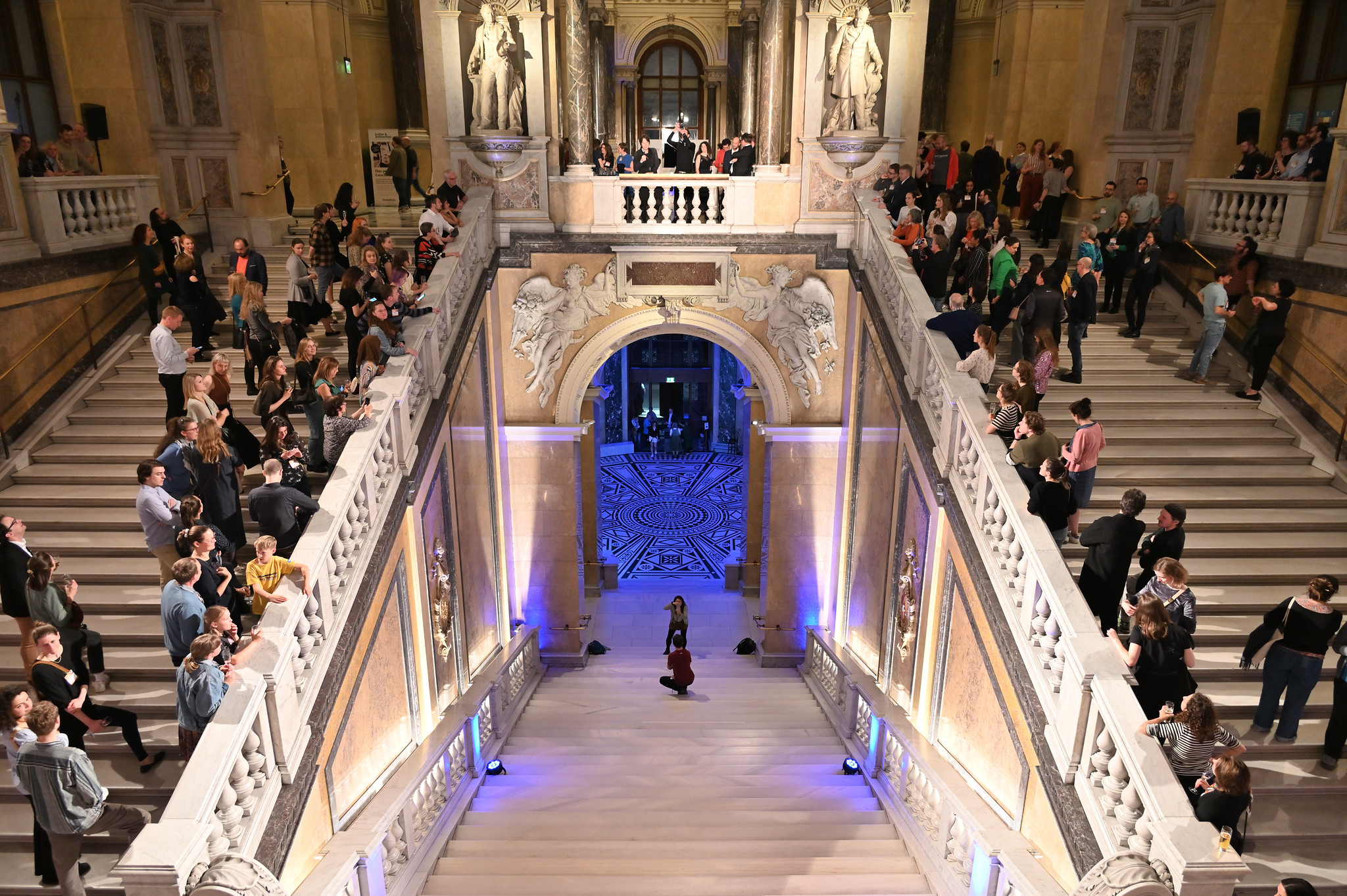
About the 5th ECSA conference: Change in citizen science
In 2024, ECSA organised its 5th conference since its establishment, elegantly celebrating its 10th anniversary in Vienna between the 3rd and 6th of April, organised by the Austrian Network for Citizen Science at BOKU University and the Natural History Museum Vienna. ECSA funders and members from its 15 working groups gathered with an open invitation to all who want to learn about and engage with the citizen science community. The conference welcomed new members, students, project leaders, volunteers, artists and policy-makers across the globe. In addition to its European orientation, ECSA maintains global connections and promotes knowledge sharing between citizen science initiatives in the African and American continents and the United States.
This year’s conference focused on the motto “Change”, as we live in a time of rapid change at many levels. While some groups may see change as positive, others may view it unfavourable. As a result, different perspectives on a given change may draw very different conclusions. The organisers wanted to address various approaches to change from all perspectives in citizen science and participatory research. Active, transformative change and the observation of change by citizen science were brought to the fore from a wide range of disciplines. In particular, the speakers at the conference explored the potential of citizen science to bring about change in research and society and to be a tool for managing constant changes around us.
Participatory research and citizen science
One of the keynote speakers of the ECSA conference, Katja Mayer (University of Vienna), in her presentation entitled ‘Participatory Turns: the bumpy roads to recognition of participatory approaches in the social sciences, and lessons for citizen science’, aimed to further interpret a long-standing and controversial topic on the third day of the conference. In social science circles, the legitimacy of citizen science as an independent discipline is questionable, given the long theoretical and methodological traditions of participatory science in anthropology, sociology and pedagogy in the social sciences in general. Historically, participatory research has often found recognition only at the margins of academic discourse because it has encountered structural and power barriers. In addition, drawing the boundaries between political engagement and social science research is a recurring dilemma as citizen science seeks to withdraw from this politicised space. Undeniably, citizen science opened new doors to the palette of participatory research processes regarding funding, technology and research vocabulary. How we adapt it to our local realities of research politics is up to us.
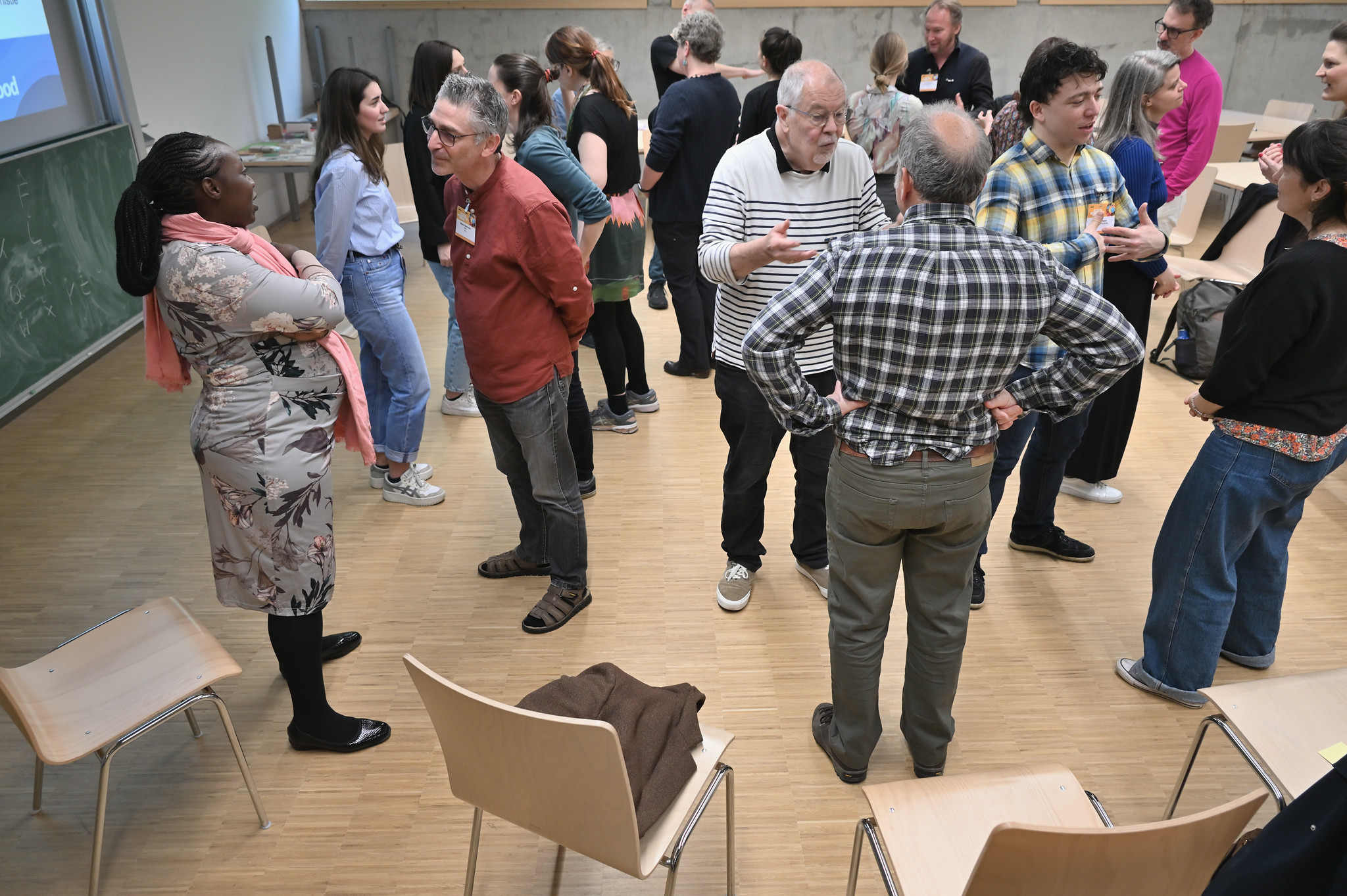
Collaborative workshop on rural citizen science
ECSA conferences attract researchers and NGO members every two years, but these events also provide a framework for its active working group members to meet face-to-face, exchange ideas, and plan ahead. The 5th conference provided a space to bring together ECSA’s younger Agri-food Working Group (Agri-food WG) and the more experienced Empowerment, inclusiveness and equity Working Group (EIE WG) members in the ‘Rural citizen science: Fostering transformative change with rural communities’ workshop.
Alexandra Czeglédi, member of both working groups and co-chair of the EIE WG, has joined the collaborative workshop to present her research on underutilised crops (UCs) and the conclusions of the on-farm UCs testing she coordinated with small-scale farmers in the RADIANT project. The full-day workshop was organised and coordinated by Petra Benyei (Institute of Economics, Geography and Demography, Spanish National Research Council, co-chair of the Agri-food WG and EIE WG) and Claire Murray (freelance researcher and facilitator).
To the ‘Rural citizen science: Fostering transformative change with rural communities’ workshop, Peter Hoebe (Farming with Nature program, Earthwatch Europe), Cathal Flood (Small rural farmer, community water officer with local authority waters programme, Freshwater Biologist and citizen scientist), Rick Hall (Royal Society of Arts, Churchill Fellow, Writer in Residence in Koli, Finland, founder Ignite Futures UK education charity), Elise Werner (University of Applied Sciences Potsdam), Gerid Hager (International Institute for Applied Systems Analysis), Marco Barzman (Sciences en Société team, Direction pour la Science Ouverte, INRAE), Lucía Moreno (Ibercivis Foundation) and Anna Verones (ECSA) joined as co-organisers and experts on the topic.
The workshop offered a full-day programme for those interested in conducting citizen science research in rural areas. Its primary objective was to get members of the two working groups out of their expert chairs in an interactive knowledge-sharing process on rurality in citizen science and to synthesise knowledge across the working groups with the creative help of the workshop organisers and artists. During the workshop sessions, participants undoubtedly learned new artistic techniques: a blues song was written and performed about one of the sessions’ results by Andrea Giacomelli (researcher, musician), and a visualisation of the sessions’ summaries is on the way by a visual artist. Beyond creative knowledge sharing, participants could try out art-based facilitation methods, such as stand-up comedy in pairs, fast-paced zine making, group-based future visioning and interactive ice-breakers, which can be used in scientific settings with adults and youth alike.
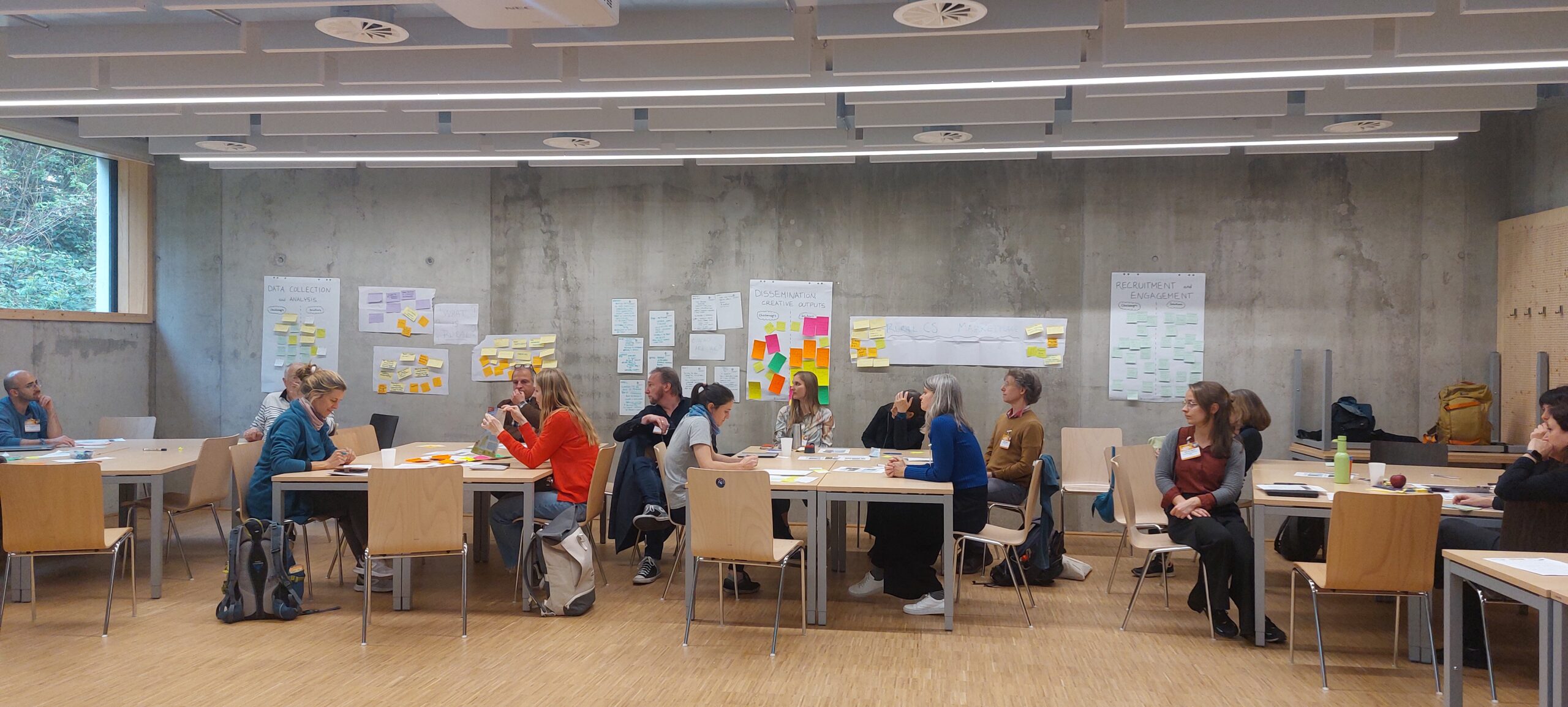
Importance of rurality in citizen science
Further to the fun activities, our workshop sessions’ organisers jointly flashed out why rurality is crucial in participatory and citizen science research to look at: ‘The rural population is reported to be 43.1% of the world’s population and is the custodian of most of the global biological and cultural diversity, simultaneously experiencing the most and the least changes in rural environments and societies. Rural communities are seeing some of the strongest impacts of the environmental and economic crises in their surroundings, with loss of habitats and species, increasingly extreme climate events, reduced employment opportunities and over-extraction of natural resources. However, they see frustratingly limited changes to an unsustainable agricultural system and in access to water/mobility/energy/digital infrastructure, access to health care and education and are frequently excluded from policy decisions that directly impact them. This means they are communities that citizen science should be looking to engage and support, as they can both report the change (or lack of change) they are experiencing and bring change into their lives if they are empowered to be part of the processes and decisions that will impact them the most.
Participatory science is not new to rural areas; it has a long and influential history in fields like agricultural sciences, rural sociology, and environmental monitoring. However, citizen science and open science have had limited reach in rural communities and bring new technical and ethical challenges. Many citizen science projects use digital platforms and tools that are often inappropriate in rural settings with low population density, formal education level and digital infrastructure. Indeed, several authors looking into the inclusiveness of citizen science highlight that there is an urban, industrialized and educated bias in citizen science participant recruitment. This bias is also reflected at an institutional level, whereby universities and scientific institutions that run citizen science projects are primarily located in metropolitan areas. A small number of civil society organisations and a loose organisational structure make it difficult for rural communities to access the field of citizen science. Particularly when researching social phenomena, such as in citizen social science, creating research forums where people come together in deliberative circles to discuss their perspectives on social developments, challenges, and problems is of great importance. Rural areas, therefore, pose particular challenges for citizen science, requiring different forms of access, participation and involvement that still need to be developed and discussed.’
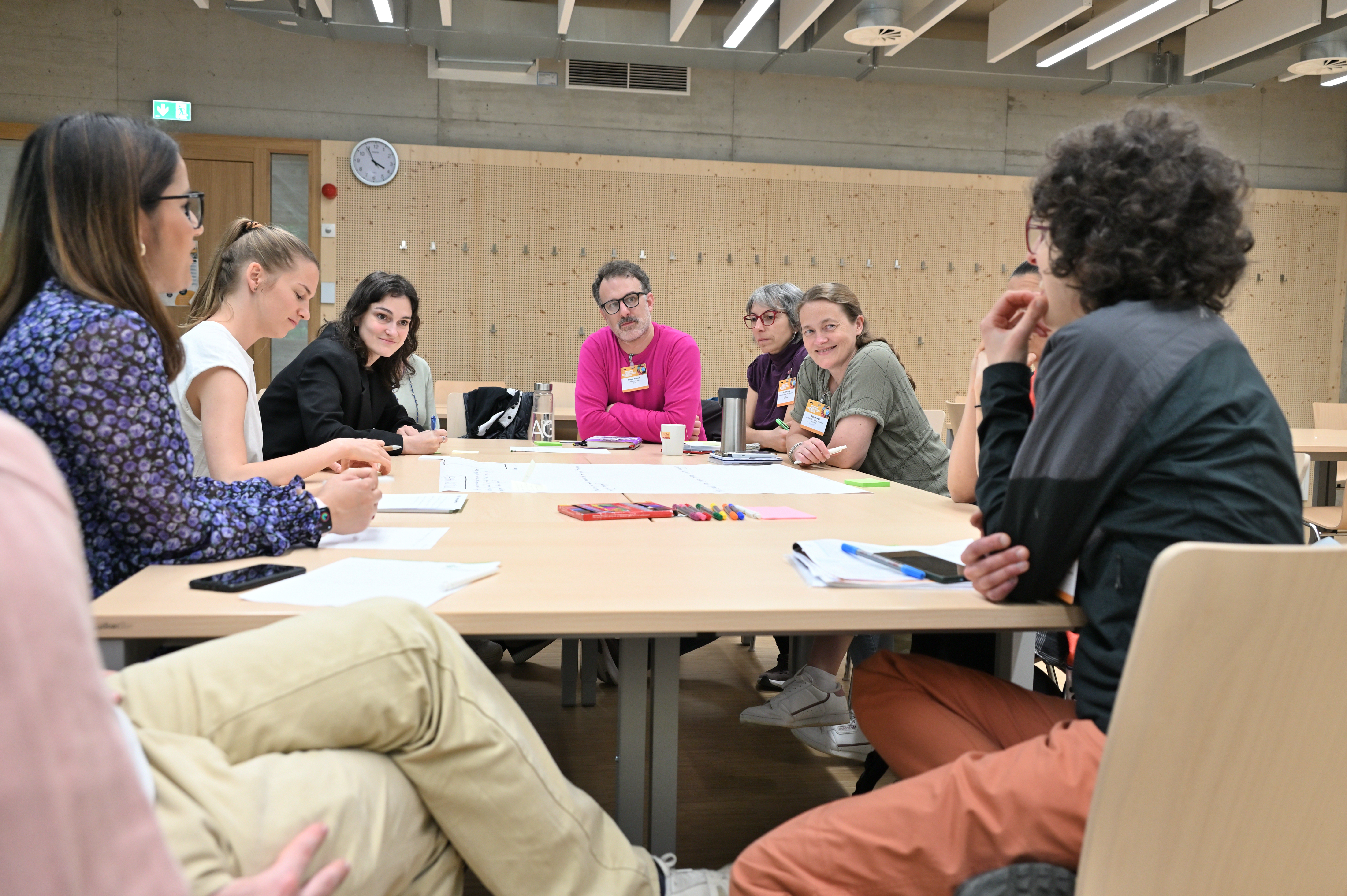
Workshop on biodiversity and citizen science
Another topic brought to ECSA this year by ESSRG was related to biodiversity, citizen science, and science-policy interfaces. This theme was explored in an interactive workshop led by Karmen Czett and Kata Fodor from ESSRG and Nikita Sharma from ECSA, which included citizen science and biodiversity experts from various backgrounds and disciplines.
The main question of the workshop was how to integrate the voices, perspectives, and knowledge of diverse societal groups into biodiversity policy-making. This was part of a series of workshops facilitated through the EU-funded project BioAgora, which is developing the European Science Service for Biodiversity (SSBD). The SSBD aims to establish a multi-layered, deliberative process to incorporate societal value choices and knowledge into biodiversity decision-making, including citizens’ knowledge.
During the workshop, participants explored the role of citizen science in the SSBD’s functioning and its potential to drive transformative change in biodiversity governance. Through a role-play exercise, attendees could step into the shoes of EU bureaucrats, international NGO representatives, or citizens passionate about butterflies and reflect on the various barriers to including citizens’ knowledge in biodiversity decision-making. Subsequently, participants engaged in brainstorming sessions to devise concrete strategies for overcoming these barriers and foster the greater inclusion of diverse voices and citizen knowledge in policy-making. Recommendations were many and creatively addressed various levels of governance. They included, among others, suggestions to institutionalise citizen science in city planning, to better understand and acknowledge the immense role of biodiversity monitoring by citizens in achieving international goals such as the SDGs, or to explore the potential of citizen science in providing early warning to policymakers.
The workshop provided a productive platform for dialogue among citizen science and biodiversity experts to explore possibilities for greater inclusion in biodiversity governance by leveraging citizen science at multiple levels.
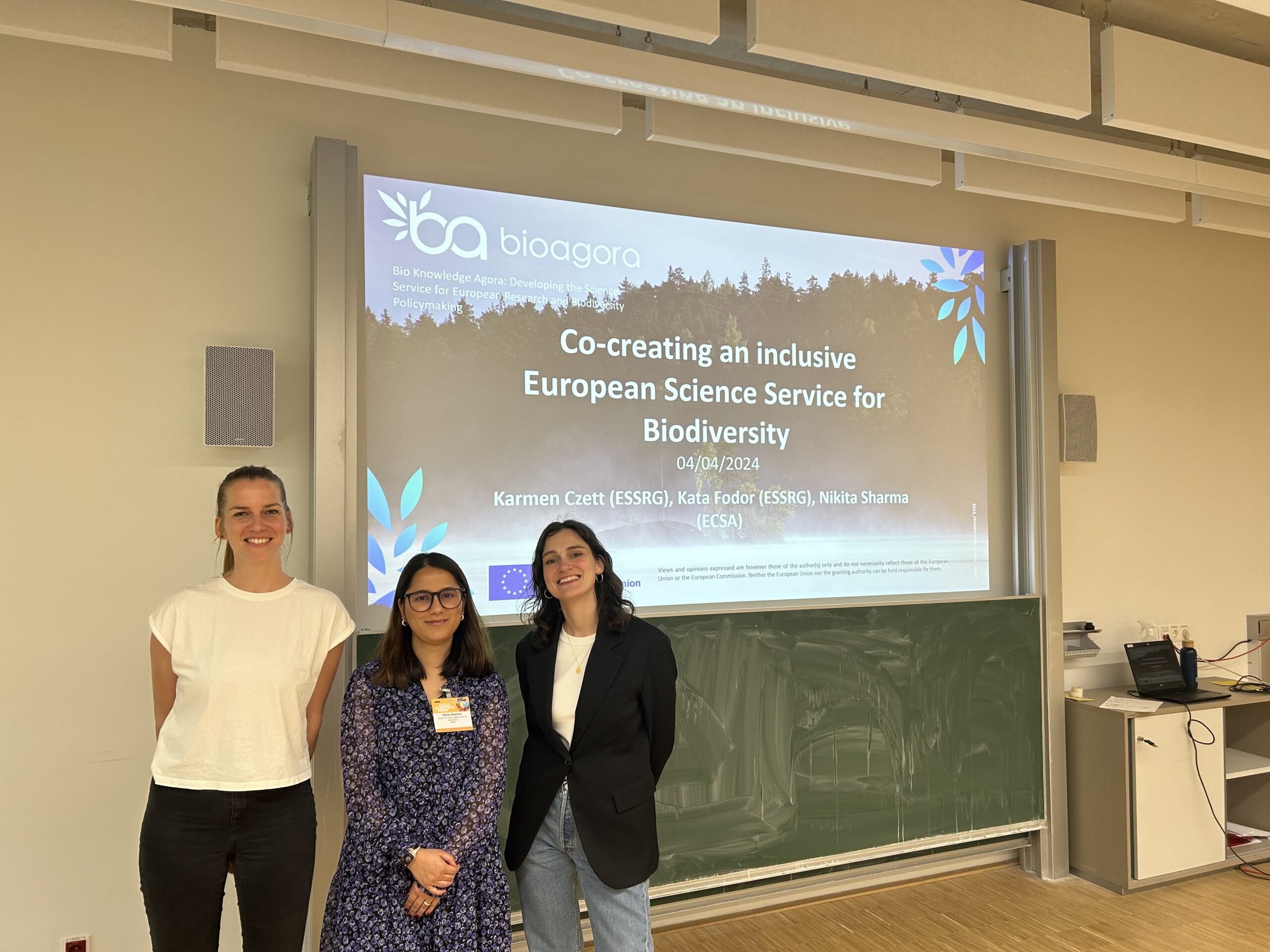
Authors: Alexandra Czeglédi, Karmen Czett, Kata Fodor
